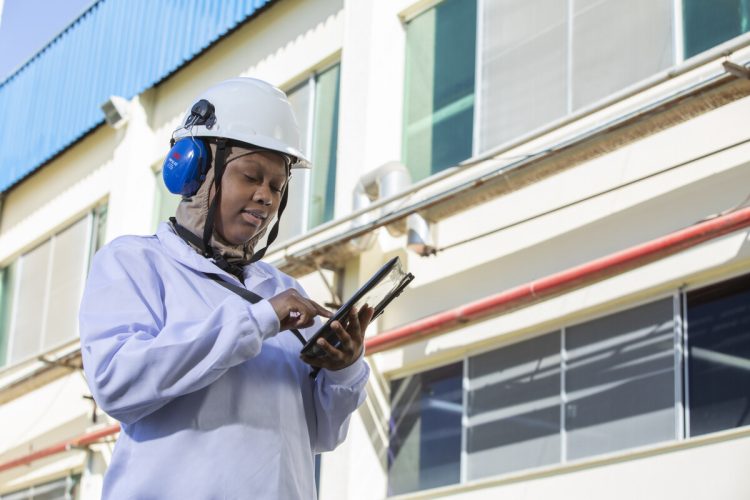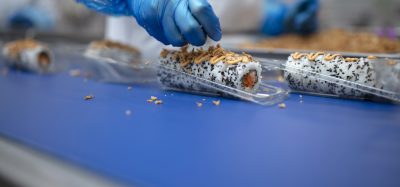Harnessing food tech to reshape the food industry
- Like
- Digg
- Del
- Tumblr
- VKontakte
- Buffer
- Love This
- Odnoklassniki
- Meneame
- Blogger
- Amazon
- Yahoo Mail
- Gmail
- AOL
- Newsvine
- HackerNews
- Evernote
- MySpace
- Mail.ru
- Viadeo
- Line
- Comments
- Yummly
- SMS
- Viber
- Telegram
- Subscribe
- Skype
- Facebook Messenger
- Kakao
- LiveJournal
- Yammer
- Edgar
- Fintel
- Mix
- Instapaper
- Copy Link
Posted: 6 September 2023 | Rogerio Peres | No comments yet
Rogério Peres, Chief Information Officer at JBS discusses how AI is revolutionising the way we produce, process, distribute, and consume food.


JBS is a leading global food company providing high-quality products to customers in over 190 countries on six continents. As a top beef, poultry and pork processor with a growing presence in the lamb, seafood, plant-based and value-added segments, innovation underpins the company’s constant evolution and sustainable growth.
Our teams across the world are harnessing food tech to reshape the food industry to increase food production and quality while improving safety and reducing our environmental footprint. Investments in big data, AI and internet of things are coordinated through a global innovation programme connecting teams around the world to support continuous improvement and shared customer and operational insights. Food tech also supports our sustainability efforts across production, distribution and consumption.
Adding value through innovation
JBS USA recently announced a partnership with Völur, a Norway headquartered company at the cutting-edge of artificial intelligence technology to optimise the meat industry. Deployed at one of North America’s most advanced beef plants in Utah, the project uses AI in carcass sorting and to generate daily cutting plans to ensure optimal use of each animal at the operational level. This in turn increases the value of each carcass by reducing waste and better aligning supply and demand of each cut to satisfy customers’ orders.
This is the latest in a series of investments to leverage computer vision and AI in our processes to capture more accurate data and add value. This includes the use of computer vision to count cattle or pig inventories increasing accuracy, to artificial intelligence to improve the quality and yield performance on our tender steak processing lines. Importantly we work as an interdisciplinary team meaning AI process optimisation also leads to waste minimisation, safety, efficiency and sustainability gains. Less obviously, it is also proving to be highly effective as an employee engagement and reward tool.
Over the past two years, our beef facility in Brooks, Canada has used AI cameras to capture the quality of tender steak processing, generating a score for each bone and qualifying each employee in terms of bone count and quality. In 2022, a daily bonus per employee was implemented based on daily delivery and validated by three parameters: quantity, quality, and audit. Ultimately, the project resulted in increased line yields, process standardisation, and boosted team member morale with a portion of the improved margins resulting from the project paid back to employees as a performance bonus.
Bridging the innovation gap
The food industry has been developing the use of sensors to improve equipment reliability and predictive maintenance tools and the use of cameras to detect quality issues, employee safety, value optimisation, packaging compliance and overall performance for some time. These efforts are now starting to evolve from data collection to actual usage applications on the production floor and JBS is at the forefront of bringing these innovations to scale.
For example, yield and dressing performance such as product trimming are core metrics in our meat processing facilities. AI-enabled innovations including increased cutting precision and automated cutting plans aligned to actual customer product requirements increase carcass value, product quality and sales whilst also lowering the emissions and waste in our manufacturing process which is win-win.
Initiatives such as the Völur carcass optimisation project are already delivering promising results. After successfully completing a proof-of-concept agreement, the project has moved into a demonstrating value phase to showcase how AI can be harnessed to provide a more profitable plan that optimises the balance between supply and demand. This is being rolled out through feasible and optimal daily plans. In the future, these plans will expand to include long-term production planning and if successful, the solution will be scaled at other JBS USA plants and business units.
Returns to date indicate that this could contribute to a 5 percent increase in sales due to better met demand and three percent increased revenue by weight due to optimised production planning. Reduced production and inventory costs also lower our carbon footprint as we work towards achieving our Net Zero ambition.
Transforming the food industry
From new product, plant-based and cultivated protein innovations to food safety, raw material block-chain traceability and sustainable packaging we are investing in R&D and working to deploy new technology to drive efficiencies across our business.
Our global teams are now using devices such as smart sensors to monitor electricity and water usage in our operations enabling efficiencies, data democratisation and ownership on the manufacturing floor.
Blockchain deployment is enabling cattle supply chain traceability advances in Brazil. We also have advanced logistics optimisation capabilities across all geographies through IoT/GPS, AI and geofencing applications. These innovations enable route optimisation and fuel efficiencies as well as reduced trips and transport costs as goods are moved from warehouse or farm to plant. Geofencing also lets teams know when fresh goods are within 20 minutes of the facility ensuring efficient processing avoiding waste.
In Brazil, the Friboi Beef business is even harnessing satellite-based logistics temperature monitoring to streamline client data sharing and real-time monitoring capability through QR codes not to mention the waste avoidance through substitution of disposable thermographs. This project alone avoids 15 tons of waste, 30 tons of carbon dioxide and reduces water usage by one million litres per year.
A food industry fit for the future
Food tech is already revolutionising the way we produce, process, distribute, and consume food. It’s a significant enabler to address the challenges of sustainability, health, efficiency, and traceability prevalent in our industry. Its adoption relies on proven value gains and optimised human-machine interaction. Its future applications are boundless. For example, we are currently working on the development of a data lake which will enable us to pool all sensor data across our projects with potential to build new AI models with ESG applications ensuring a food industry fit for the future.
About the author


Related topics
Ingredients, Quality analysis & quality control (QA/QC), Research & development, retail, Supply chain, Trade & Economy, World Food









